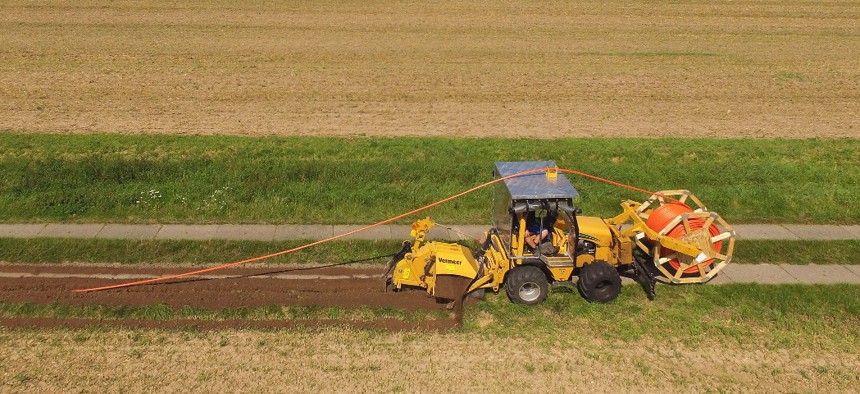Commerce Issues States $277M in Grants to Build Out Broadband

Sean Gallup/Getty Images

Connecting state and local government leaders
Millions were dispersed across 12 states to develop stronger internet infrastructure, a key mission in the Biden administration agenda.
The Department of Commerce’s National Telecommunications and Information Administration announced on Friday that it issued over $277 million in grant funding to further develop the U.S.’s broadband infrastructure, a key component in President Biden’s infrastructure goals.
The sum of federal funding was divided across 13 individual grants, and will help connect over unserved homes in Georgia, Guam, Kentucky, Louisiana, Maine, Mississippi, Missouri, Nevada, North Carolina, Pennsylvania, Texas, Washington and West Virginia.
“Today’s awards are another example of the Biden administration’s commitment to closing the digital divide and building strong partnerships with those who can help us expand internet access,” said Secretary of Commerce Gina Raimondo in the press release.
Most of the projects receiving this funding are middle and last-mile developments that bring internet connectivity to remote locations with limited to no service. The largest beneficiary is the Missouri Department of Economic Development, which will use the funds to bring network connection to 12 counties statewide. Missouri will receive $42,000.
“These awards are a great first step in our march toward connecting every American to affordable, high-speed broadband service,” said Alan Davidson, the Assistant Secretary of Commerce for Communications and Information. “We are eager to work closely with the grant recipients who will help us deploy broadband infrastructure to areas that have lacked it for too long.”
Development of a stronger nationwide telecommunications network is part of Biden’s landmark Infrastructure Investment and Jobs Act, which allocates a total of $65 billion in taxpayer funding to broadband infrastructure in particular.
Broadband access has been lacking for many parts of the country, notably in rural areas with challenging terrain and among Native American communities.
“Thanks to the Bipartisan Infrastructure Law, we now have the opportunity to connect every unserved household in the country, ensuring that all Americans are able to participate in our 21st century economy,” Raimondo said. “This is not only a win for American families who need and deserve high-speed, affordable internet for remote learning and telehealth services, but this also presents an incredible opportunity for American businesses and will make our country more competitive globally.”
This funding injection follows a new round of financing for underserved and unserved schools and academic institutions. The Federal Communications Commission announced on Wednesday that another $86 million in federal funding was given to libraries and schools with connectivity problems via the Emergency Connectivity Fund.
“The Emergency Connectivity Fund is the single biggest effort to close the Homework Gap, and connect students and libraries with reliable broadband service,” said FCC Chairwoman Jessica Rosenworcel. “The need for help is clear, and we’re making progress.
The importance––and disparity––of internet access in the U.S. was spotlit at the onset of the pandemic, as communities began working and learning remotely. The FCC noted that since the launch of its Emergency Connectivity Fund in June 2021, over $86 million has been dispersed to communities in need.

NEXT STORY: The Future of Government is Virtual





